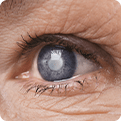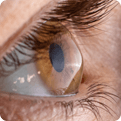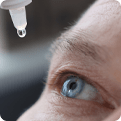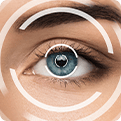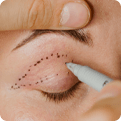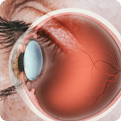
Refractive lens exchange (RLE) is a procedure that helps you see more clearly without relying on glasses or contact lenses. As a common type of refractive eye surgery, RLE is often chosen by patients in Newark whose vision has changed with age, or who aren’t good candidates for laser vision correction. RLE is generally considered for patients who already experience presbyopia, or the need for reading glasses or bifocals, as a normal part of the aging process. For that reason, RLE is generally recommended for those over the age of 40. The procedure works by replacing the eye’s natural lens with an artificial one that restores clearer vision. If you’re looking for a long-term solution to vision problems, it’s worth investigating the benefits of RLE.
What Are the Advantages of Refractive Lens Exchange?
Lens replacement surgery (RLE) is one of several potential options available for people with refractive errors. Here are some key reasons to consider this surgical procedure in consultation with an eye care specialist.
RLE Corrects a Range of Vision Problems
RLE treats multiple refractive errors including nearsightedness, farsightedness and astigmatism. This ability to correct a range of vision issues makes it a flexible option for those seeking clear vision across different distances. For patients with complex vision needs, RLE can treat multiple refractive errors at once using a customized intraocular lens (IOL).
Reduce the Need for Glasses or Contact Lenses
Multifocal or extended depth-of-focus lenses offer vision improvements at near, intermediate and long distances. After successful RLE with an advanced IOL, patients can typically reduce or eliminate the need for glasses and contact lenses. For those unhappy with the cost and inconvenience of eyewear, refractive lens exchange could be the best choice for fixing your vision issues.
Provides a Permanent Vision Correction Solution
The lenses used in RLE are permanent, delivering stable long-term results. Unless you experience a rare complication, you can rely on your artificial lens to maintain the same level of vision correction for your lifetime.
Limited Recovery Time After Surgery
Most patients notice improvements in their vision within just a few days after the procedure. After one to two days of rest and healing, many can return to normal activities without noticeable discomfort or blurry, hazy vision.
RLE Is a Good Alternative to LASIK
Patients with thin corneas, dry eye syndrome and severe nearsightedness or farsightedness may not be good candidates for LASIK or PRK. As RLE does not involve reshaping the cornea, it’s often a suitable option for individuals with these conditions.
RLE Prevents Cataract Development
Cataracts are a common cause of vision loss as people age. However, as refractive lens exchange surgery involves replacing the eye’s natural lens, it eliminates the possibility of cataracts developing in the future. With this procedure, patients improve their vision now and also avoid the need for cataract surgery later in life.
Contact Us for Refractive Lens Exchange in Newark, DE
If you’re looking for a proven way to correct refractive errors and reduce dependency on glasses, speak with the team at Eye Care of Delaware. We provide lens replacement surgery, laser vision correction and other refractive surgery options. Call (302) 454-8800 or request an appointment today.

